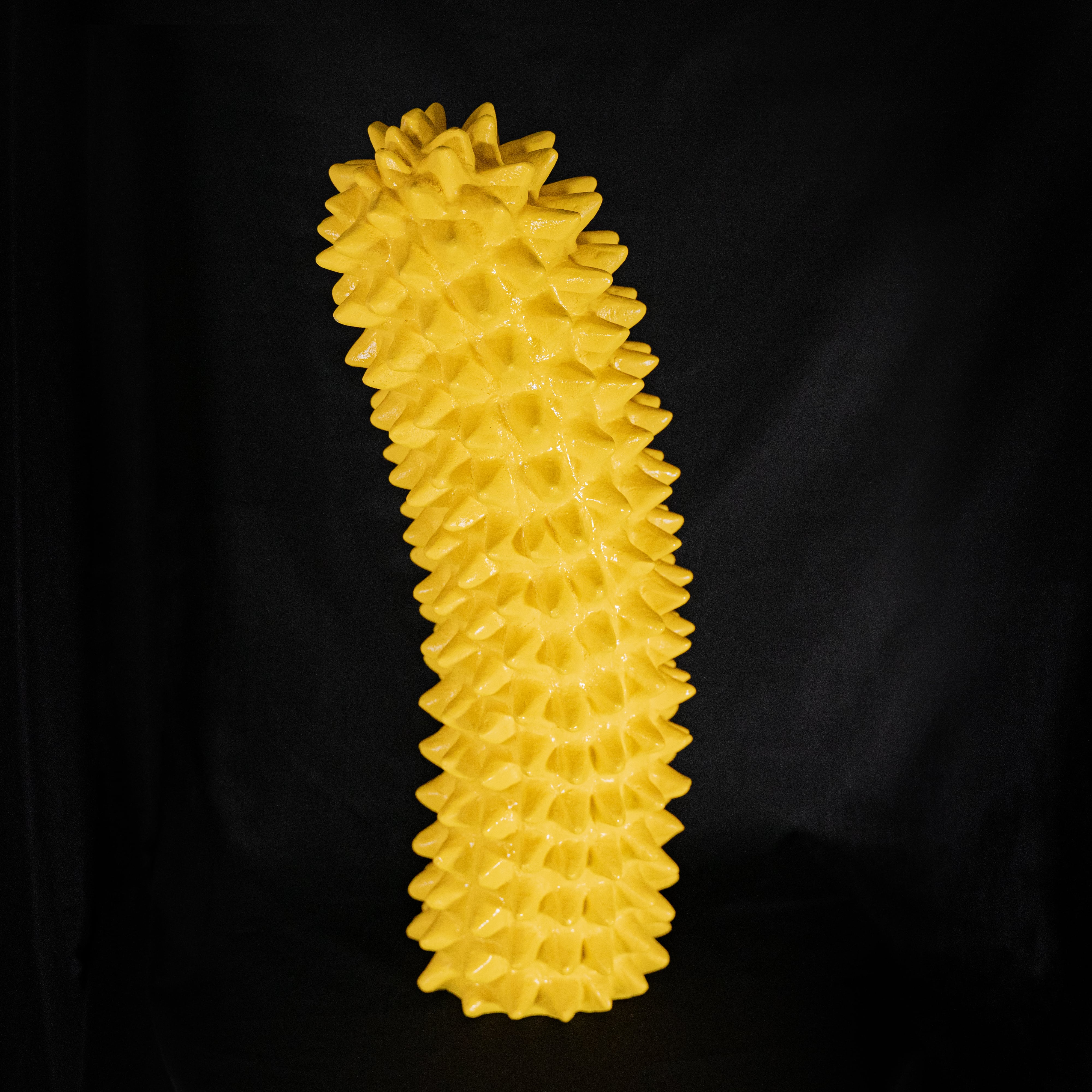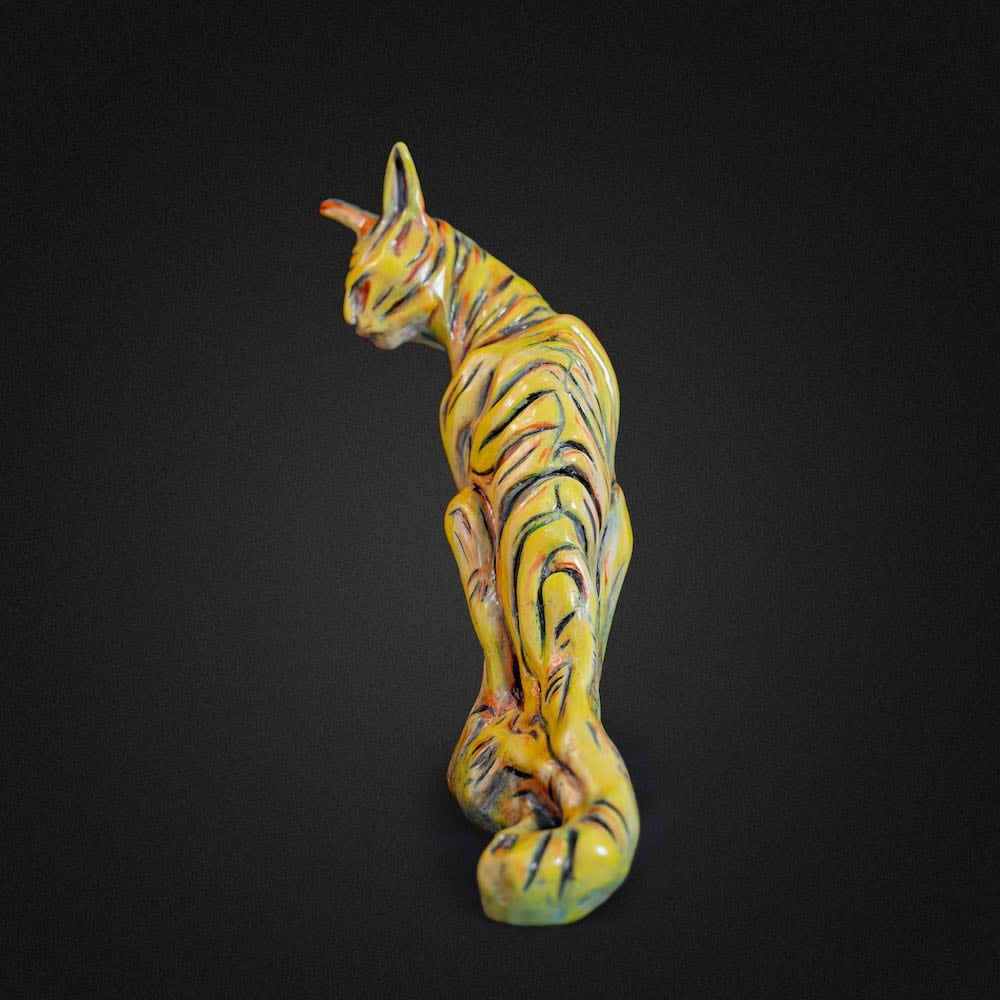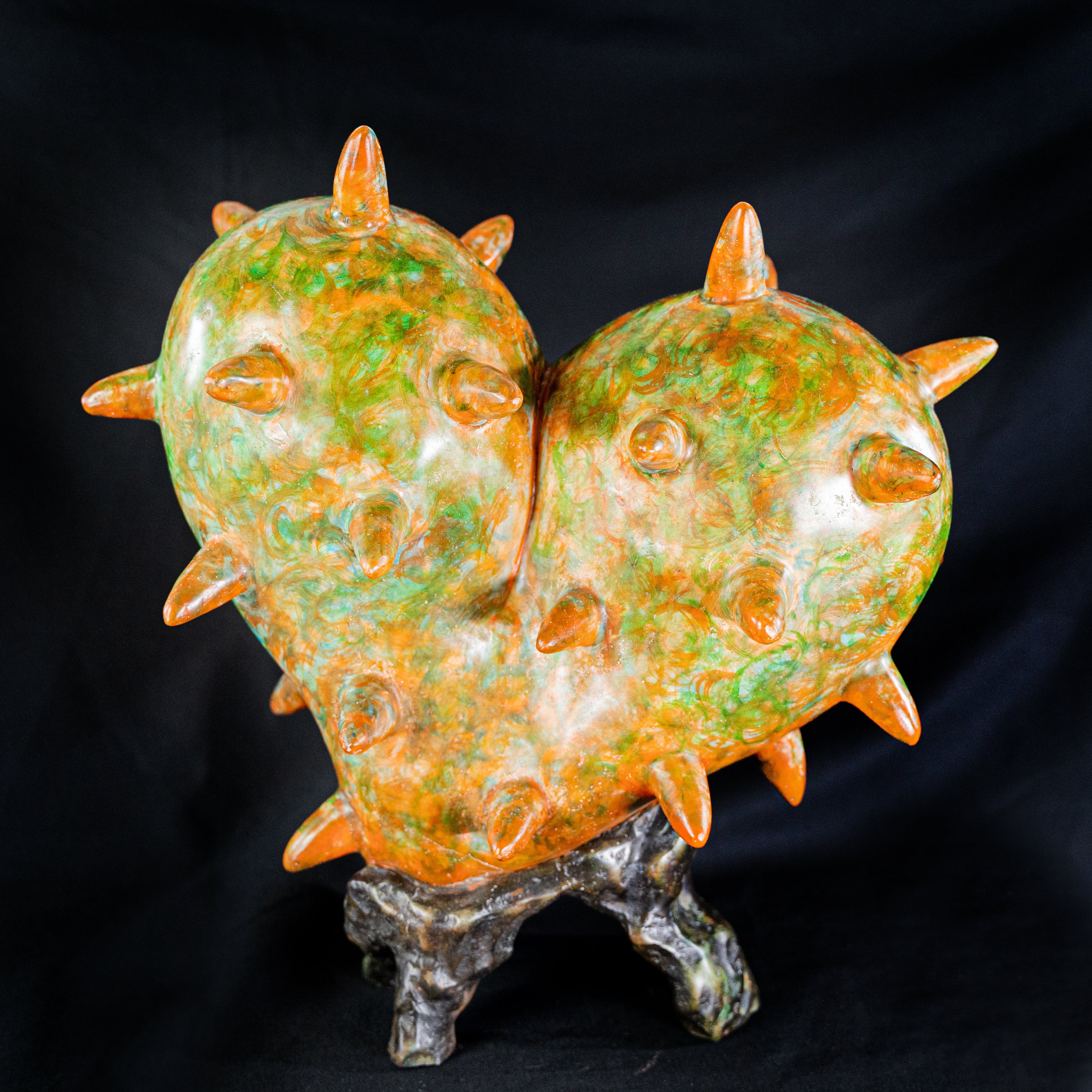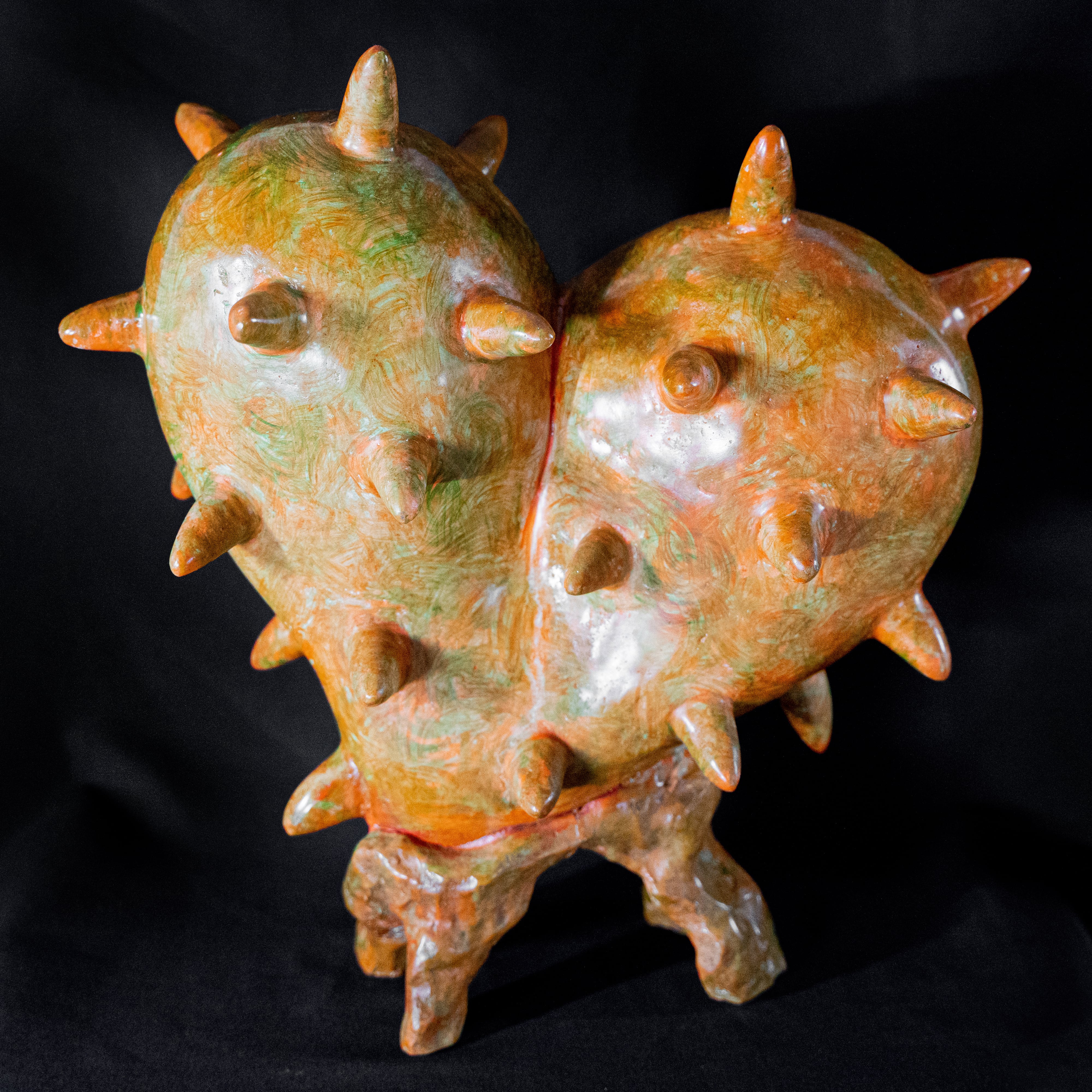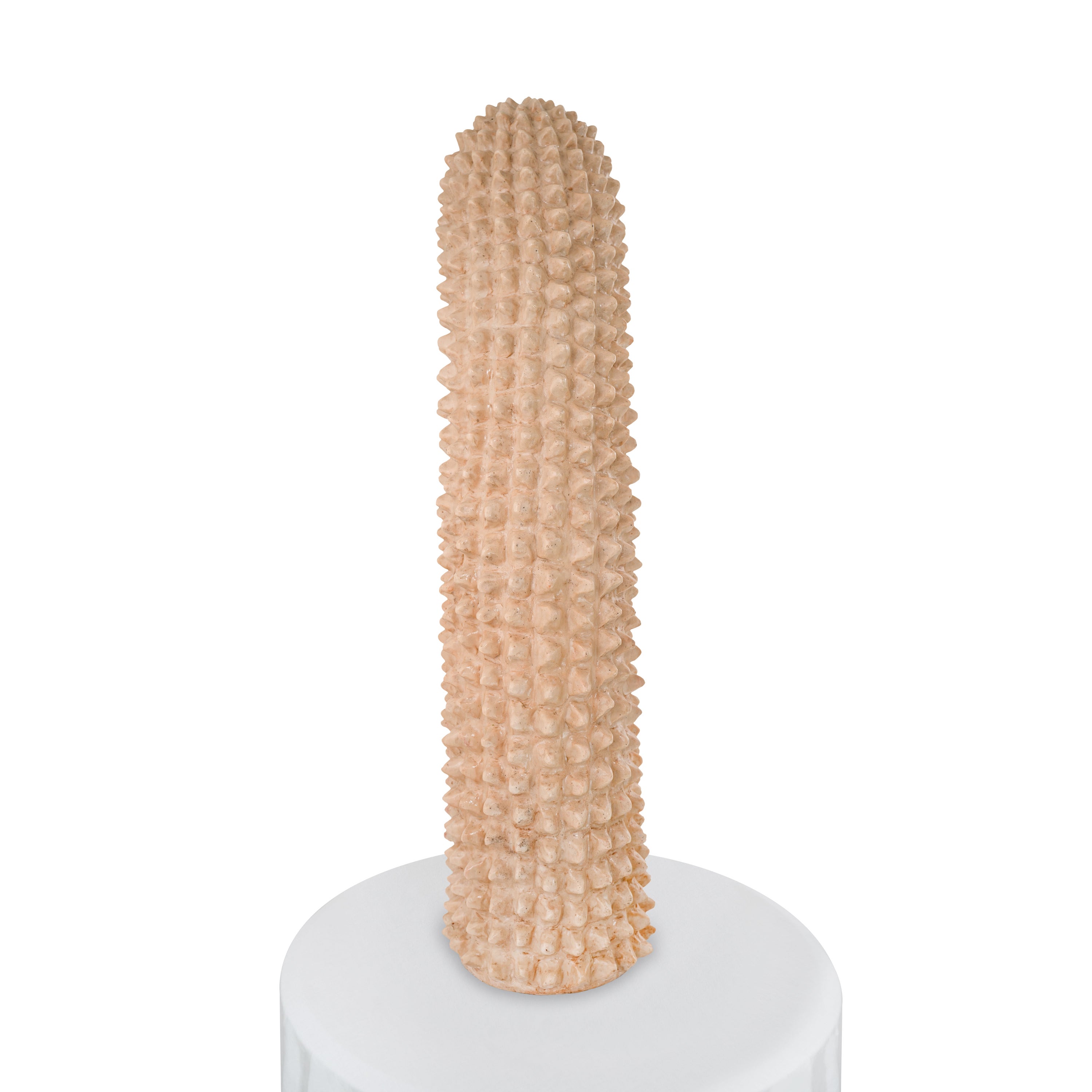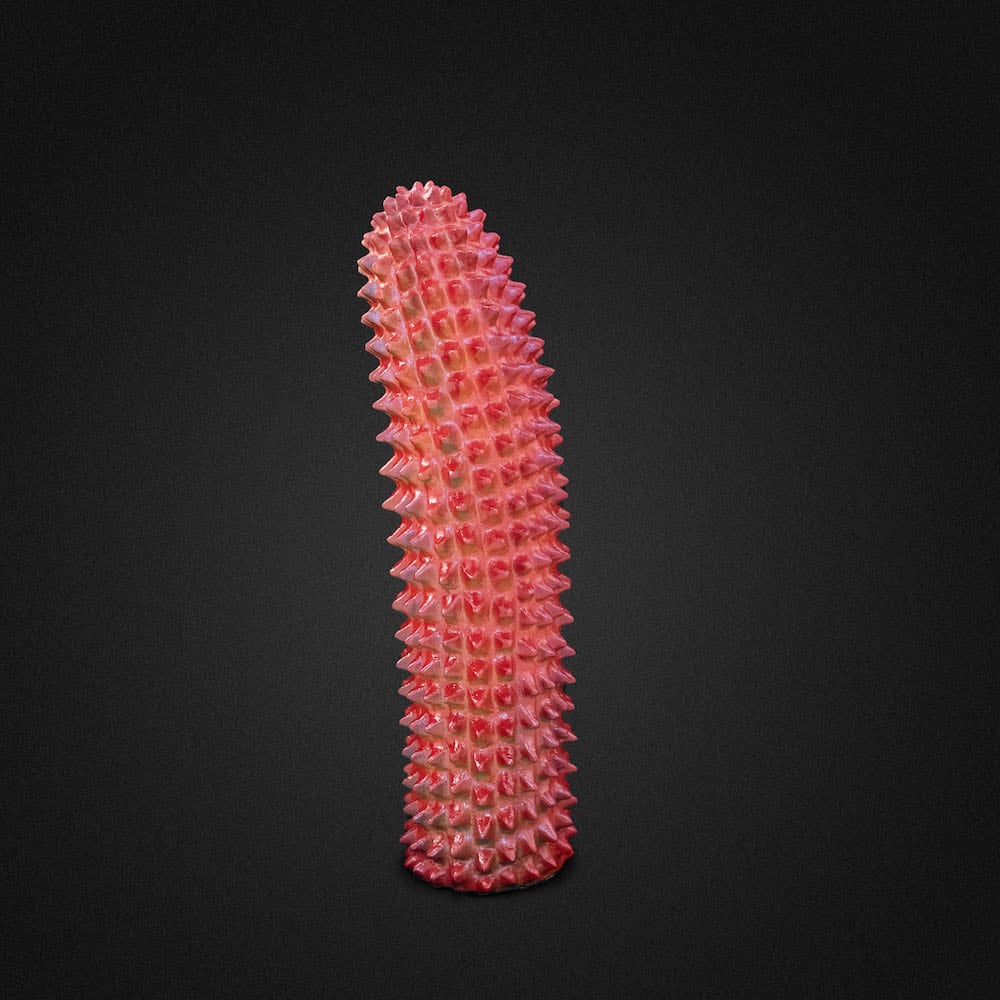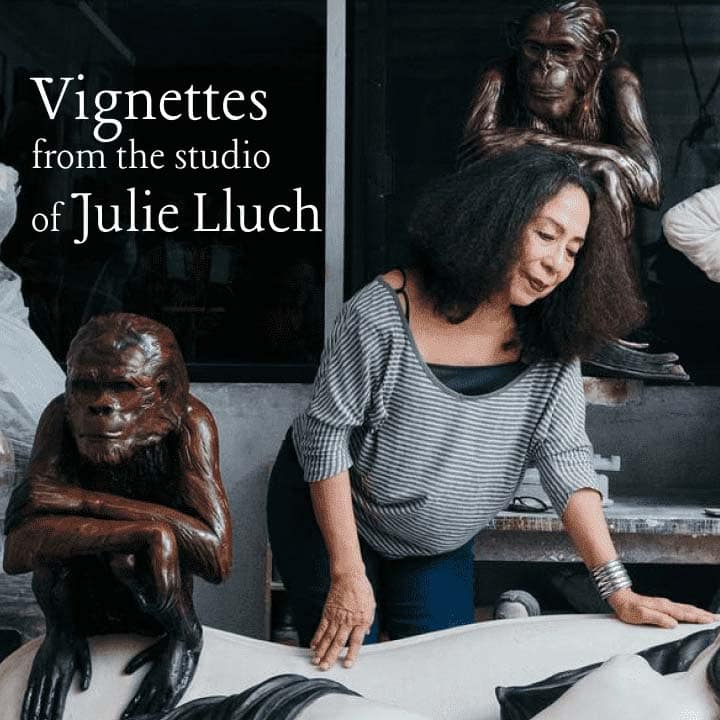
Born on March 5, 1946 in Iligan City, Julie Lluch is one of the foremost living sculptors of the Philippines. Self-taught, Lluch is distinguished as a master of clay and terracotta, a medium she considers a “sensuous and pleasurable” albeit exhausting medium. She is known to struggle and shape this clay into life-sized portraits. Also adept with stone, ceramic, and bronze, her body of work has been critically acclaimed for addressing issues on sexuality, femininity, the relationship between the sexes, social mores, and the circumstances of women’s lives. Her later works have also dealt with realities through a theological lens, particularly through the Christian doctrines of grace, faith, and Kairos.
In the recent past, Julie Lluch has been occupied with public sculpture commissions of prominent figures of Philippine history and government. In the 2020 Art Fair Philippines, she unveiled ''Irresistible Grace: In the Time of Plague,'' a recreation of Juan Luna's Spoliarium using a panoply of historical and autobiographical life-sized figures in terracotta, cold cast marble, and other materials.
Lluch has been the recipient of various awards for her sculpture, including the cultural Center of the Philippines (CCP) Thirteen Artists Award, the Outstanding Citizenship in Art from the City of Iligan (1992), the Most Outstanding Woman Artist award from the City of Quezon City (1995), and the Sining at Kalinangan Award sa Araw ng Maynila from the City of Manila (1997). Since her first exhibition in 1977, her works have been exhibited in the Philippines and abroad. Most notably, her sculptures have been presented at the 3rd Asian Art Show at the Asian Art Museum in Fukuoka, Japan in 1989; at the First Asia-Pacific Triennial at Queensland Art Gallery in 1993; and at the exhibition on Asian modernism organized by the Japan Foundation and presented in Thailand, Indonesia and the Philippines in 1995. In 2008, The Cultural Center of the Philippines dedicated a retrospective exhibition to her called ''Yuta: Earthworks''
